TABLE OF CONTENTS
What are the Texas Marijuana laws today? In 2019, Texas legalized the hemp variety of the cannabis plant. Since then, enforcement of possession has gotten trickier. Here’s what you need to know about the marijuana laws in Texas.
Texas Medical Marijuana Laws
Currently, recreational cannabis possession and use are illegal under Texas law. Texas’ anti-pot possession laws date back to 1931. Until 1973, the drug was classified as a narcotic with the possibility of life sentences for possession of small amounts. While Texas still has some of the harshest marijuana possession laws, Texas counties are coming around.
Medical cannabis in Texas became legal in 2015 when Gov. Abbot signed the Texas Compassionate Use Act into law.
A departure from harsh prohibition, the medical cannabis law allowed people with intractable epilepsy only to access cannabis oil containing less than 0.5 percent THC. Texas does not allow smokeable cannabis products.
In 2019, Abbot signed House Bill 3703 which expanded the list of qualifying patients to include diseases such as autism, terminal cancer, incurable neurodegenerative diseases (Parkinson’s disease, Alzheimer’s, Huntington’s), multiple sclerosis, spasticity, epilepsy, seizure disorders, and Lou Gehrig’s disease (ALS).
The bill also eliminated the need for a second physician’s opinion making it easier for more people to access medical cannabis treatment.
Texas sales of legal marijuana are restricted to a small market of three medical cannabis dispensaries. For patients with mobility problems, two dispensaries are equipped with delivery services.
Although the Texas Department of Public Safety (DPS) intended to license more dispensaries, the licensing process was unexpectedly put on hold at the end of 2019 and continues to be stalled.
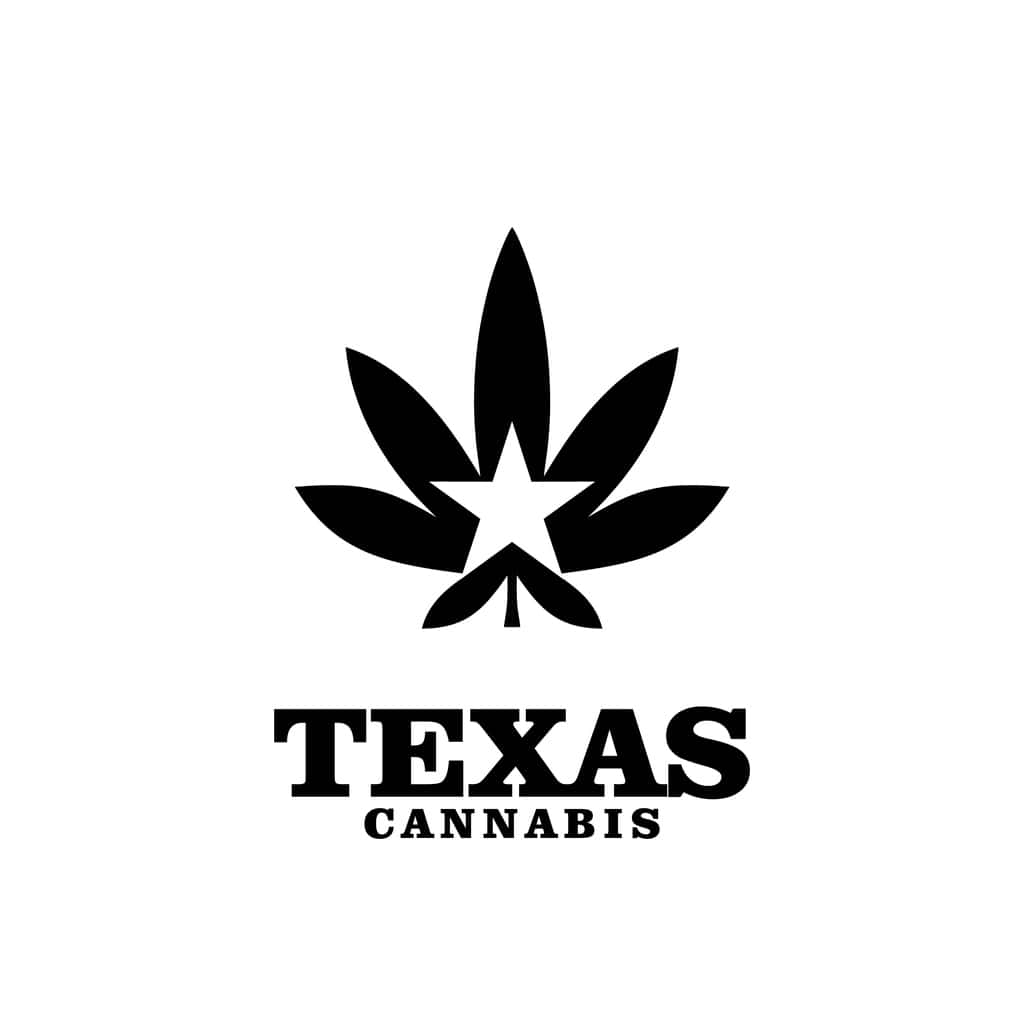
Hemp is Legal in Texas
In 2019, Texas intended to line up with a 2018 federal law, which made hemp production legal, but marijuana still remains a scheduled substance. For law enforcement, the problem is telling the difference between marijuana and hemp without expensive and time-consuming lab analysis.
Cannabis and hemp come from the same plant and look and smell very similar. The main difference is its THC content. Hemp is classified as a plant with a THC concentration of less than 0.3 percent. Anything above this cutoff point is considered marijuana.
Now, Texas businesses are selling CBD products with less than 0.3 percent THC to consumers without the need for a physician’s prescription. Consumers use CBD products for a variety of recreational and medicinal purposes.
Ever since hemp became legalized in Texas, marijuana prosecutions have dropped by half. Law enforcement agencies that continue to pursue charges must pay for the expensive lab testing needed to determine whether a substance is hemp or marijuana.
Although hemp is legal in Texas, lawmakers haven’t developed any broad licensing requirements to ensure businesses run smoothly. The lack of regulatory infrastructure has caused some distributors to be arrested for allegedly transporting marijuana, which turned out to be hemp.
For efficiency’s sake, many Texas counties are choosing to drop low-level marijuana possession charges and have stopped pursuing new cases.
Before Texas made hemp legal, Nueces, Harris, Bexar, and Dallas counties had decriminalized first-time, low-level possession offenses. Instead, counties offer drug diversion programs and employ cite-and-release policies.
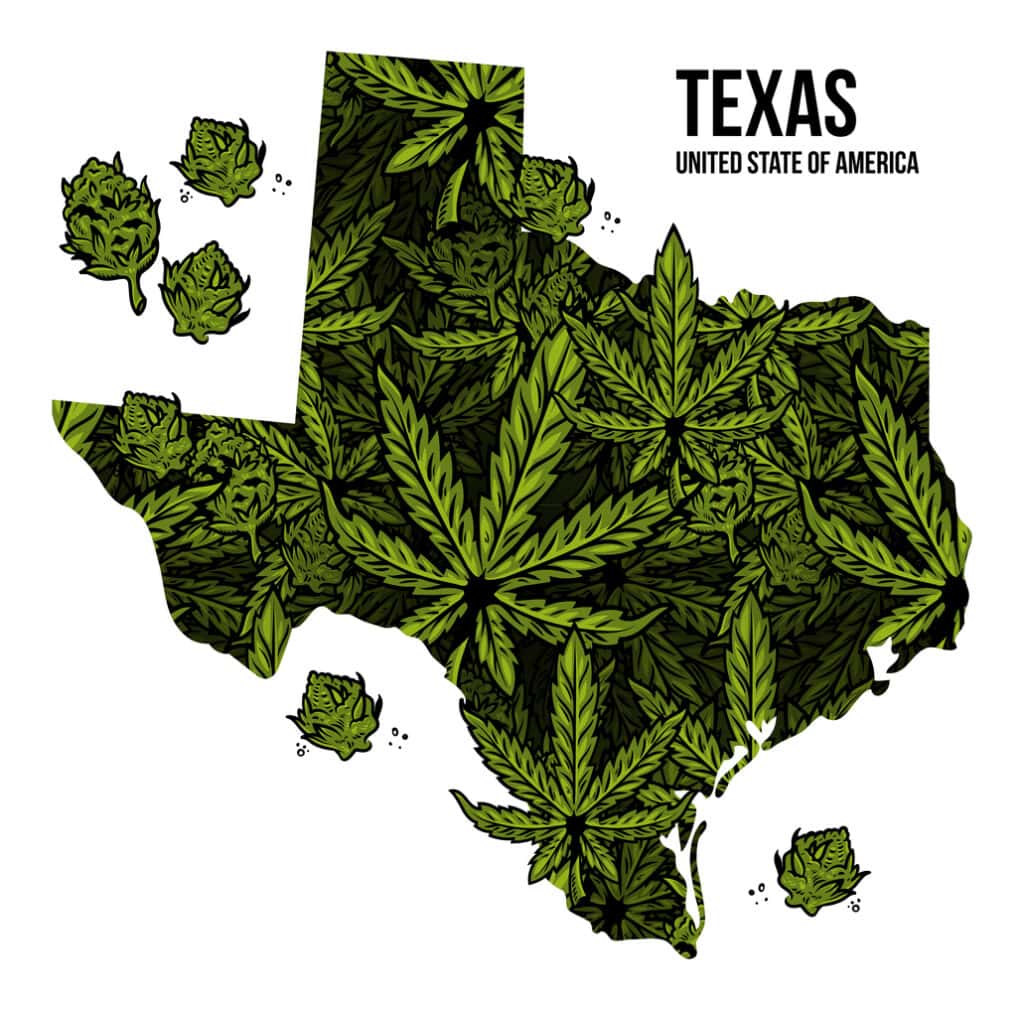
Texas Laws Against Recreational Marijuana Possession and Selling
In Texas, prosecutors can press criminal charges for possession of small amounts of recreational marijuana. Charges for gifting, possessing, or selling marijuana can carry more than $1,000 fine and jail time.
- Possession of fewer than two ounces is a misdemeanor punishable by a maximum fine of $2,000 and/or 180 days in jail.
- Gifting one-fourth of an ounce or less is a misdemeanor punishable by a $2,000 fine and/or 180 days of jail time.
- Possessing two to four ounces gets up to a $4,000 fine and/or a year in jail.
- Selling one-fourth of an ounce or less can be punishable with up to a $4,000 fine and/or a year in jail.
- Possessing four to five ounces is a felony punishable with up to a $10,000 fine and 180 days to two years in prison.
- Selling between one-fourth of an ounce and five pounds is punishable with up to a $10,000 fine and/or 180 days to two years in jail.
- Possessing between five to 50 pounds is a third-degree felony that can earn you a fine of up to $10,000 and/or between two to 10 years in jail.
- Selling between five and 50 pounds can be punishable with up to a $10,000 fine and/or between two and 20 years in prison.
- Possessing between 50 and 2,000 pounds is a second-degree felony punishable with a fine of up to $10,000 and/or between two to 20 years in jail.
- Selling between 50 and 2,000 pounds is punishable with a fine of up to $10,000 and/or between five and 99 years in prison.
- Possessing more than 2,000 pounds is punishable with a fine of up to $50,000 and/or five to 99 years in jail.
- Selling more than 2,000 pounds is punishable with up to a $100,000 fine and at least ten and up to 99 years in jail.
- Possessing drug paraphernalia including items used to grow, store, or sell marijuana is a Class C misdemeanor punishable with a fine of up to $500 without jail time.
- Selling paraphernalia is a Class A misdemeanor punishable with a fine of up to $4,000 and/or one year in jail.
In February 2020, Steve McCraw, the director of the DPS, announced that the department would not be testing misdemeanor marijuana possession cases. The department cites a lack of resources to test low-level possession cases.
Texans Support Legalization of Cannabis
Despite Texas’ stronghold against a robust medical marijuana program and recreational marijuana market, a majority of Texans already support cannabis legalization. According to a June 2018 poll conducted by the University of Texas and the Texas Tribune, more than 80 percent of the state’s voters support some form of legalization.
A poll of likely Texas Democratic primary voters conducted in March 2020 by Nexstar Media Texas TV Stations and Emerson College found that only 10.1 percent of those surveyed believed marijuana possession and use should be illegal. 29.7 percent support decriminalization. 21.5 percent said only medical cannabis should be legal. 38.7 percent support full cannabis legalization.
Texas Marijuana Jobs
While THC-rich marijuana remains illegal in Texas, many Texas cities have seen a surge of marijuana-related businesses. Many of these up-and-coming cannabis companies focus on CBD products. Retail stores require knowledgeable store associates and a team of marketing, accounting, and security professionals.
The number of hemp and CBD businesses is hard to estimate, but the Austin Chamber of Commerce has counted at least three relocations or expansions in the community since hemp was made legal in Texas. They estimate that about 140 new jobs were created in the area.
7 Ways Texas Cannabis Laws Are Limited
condition or symptom. In Texas, the medical cannabis program is very limited, allowing only a handful of conditions to use cannabis, restricting home cultivation, and imposing a THC cap.
Whether you live in Texas or are a medical marijuana patient and plan on visiting The Lone Star State, understanding the medical cannabis program’s limitations can help you find therapeutic relief with legal products and help you stay on the right side of the law.
1. Limited List of Qualifying Conditions
In June 2021, Texas Governor Greg Abbott signed House Bill 1535 into law expanding the state's medical cannabis program. The bill allows patients with any type of cancer (not just terminal cancer) and/or post-traumatic stress disorder (PTSD) to obtain a doctor's recommendation to use low-THC cannabis products.
Under the state’s Compassionate Use Program, medical cannabis use is limited to Texas patients with:
- Epilepsy
- Seizure disorders
- Multiple sclerosis
- Spasticity
- Amyotrophic lateral sclerosis (ALS)
- Autism
- All types of cancer
- An incurable neurodegenerative disease
- Post-traumatic stress disorder (PTSD)
Texas has one of the most restrictive lists of qualifying conditions. Its medical cannabis program excludes patients with any other medical condition or symptom. Conditions such as anxiety, depression, chronic pain, arthritis, and many more do not qualify under the current program.
2. 1% THC Cap
House Bill 1535 also recently raised the cap on THC concentrations in medicinal products from 0.5% to 1%. According to advocates, doctors, and medical patients, the 1% limit is still not sufficient enough to treat those with serious conditions such as cancer and PTSD.
In some cases, medical patients will have to buy and consume extraordinarily high amounts of low-THC products to find relief. Texas's THC cap of 1% limits a patient's ability to manage chronic pain and reduce the use of opioids, which can be addicting and even fatal in some cases.
By using medical cannabis as an alternative to opioids, patients significantly reduce their risk of dependency and eliminate the risk of death due to overdose. Texas lawmakers still buy into the stigma around THC, which continues to hurt patients.
3. Harsh Penalties for Possession and Cultivation
While some cities and counties within the state have moved to decriminalize cannabis possession, cannabis penalties in Texas are still relatively harsh compared to other states. Getting caught possessing, cultivating, or selling cannabis in Texas can lead to criminal charges. The severity of the charge depends on the amount in possession.
Possession of up to 2 oz of cannabis is a Class B misdemeanor and punishable with up to six months of jail time. Possession of up to 4 oz of flower can be punishable with a Class A misdemeanor carrying up to 12 months of jail time. Possession of larger amounts of flower or any concentrate is a felony charge. Cultivation of any flower amount is a felony.
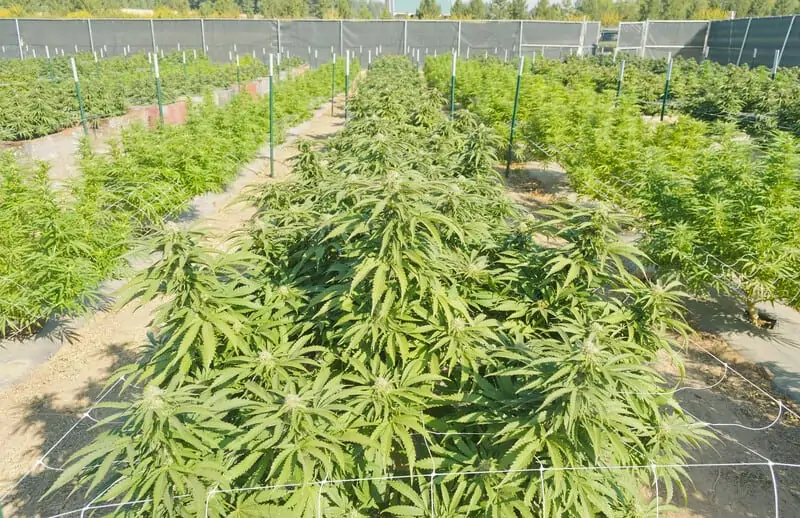
4. No Smokable Hemp Production
Up until recently, smokable hemp was banned in Texas. In August 2020, a group of hemp companies sued the state after it banned smokable hemp. A Texas court temporarily reversed the ban until the next court hearing, allowing the sale and distribution of smokable hemp products but not their production.
Smokable cannabis provides patients with nearly instantaneous therapeutic effects compared to other delivery methods such as edibles and topicals. While patients can buy these products now, the ban on production limits the availability of smokable hemp in the state.
5. No Home Cultivation
Under current Texas medical marijuana laws, home cultivation of cannabis is not allowed. Since insurance companies do not cover cannabis, patients are limited to products available via brick-and-mortar or online retailers.
Medical patients with serious conditions may not be able to work as much and have high medical expenses, making cannabis medicine prohibitively expensive.
Legalizing the cultivation of cannabis at home would significantly increase patient access. In addition, home cultivation can cut down the market share of illegal dealers. If cannabis patients can grow at home, they do not need to buy cannabis from illicit dealers as much or at all.
6. Limited Dispensaries
In July 2021, the Compassionate Use Registry reported a total of 7,454 registered patients. The Department of Public Safety has licensed only three dispensing organizations so far. With such low accessibility, many patients are forced to drive far distances or order from dubious retailers online.
Under the Texas Health and Safety Code, the department can “issue at least three licenses but no more than the number of licenses necessary to ensure reasonable statewide access to, and availability for patients prescribed low-THC cannabis.”
7. No Reciprocity for Out-of-State Patients
Under Texas medical marijuana laws, if you are a medical cannabis patient and want to obtain low-THC cannabis in Texas, you must be a Texas resident and obtain a doctor's recommendation to legally use cannabis. Out-of-state medical patients with a medical card from their states cannot buy cannabis in any of Texas’s licensed dispensing organizations.
60% of Texas Voters Support Legal Cannabis
Although the state has some of the most restrictive cannabis laws in the country, support for cannabis legalization is growing. A June 2021 poll by the University of Texas and Texas Tribune found that 60% of state voters support the legalization of a small amount of cannabis. Out of the 60% of voters that supported cannabis legalization, 73% were Democrats, 74% independent, and 43% Republicans.
In a breakdown of the 60% of voters that support cannabis use, 31% support possession of a small amount of marijuana for any purpose. 29% support possession of any amount of cannabis for any purpose.
A separate 27% of participants support cannabis possession for medical purposes only. 13% believe cannabis should not be legal for any purpose.
Final Thoughts on Texas Medical Marijuana Laws
The limited medical cannabis program in Texas provides some patients with access but still excludes a majority of Texans who can benefit from this medicine.
“
There are over 300,000 jobs in the cannabis industry. CTU trained me for one of them!

Makes $24.50 @ THC +
Until lawmakers decide to expand Texas medical marijuana laws, medical patients will continue to seek cannabis elsewhere. State regulation could keep patients safe and help them find relief.
If you’re interested in finding a cannabis-related job in Texas, consider investing in a Texas Cannabis College. Cannabis Training University offers students around the world a comprehensive marijuana training program on foundational topics from cannabis cooking to thc extraction training and more. Start your journey as a cannabis professional today with Texas Cannabis University.
Is Texas a No Tolerance State for Marijuana?
Adult usage marijuana is prohibited, whereas medical marijuana is permitted but strictly regulated.
Is Hemp Prohibited in Texas?
Consumable hemp products that contain no more than 0.3% Delta-9 tetrahydrocannabinol are permitted in Texas under Texas Health and Safety Code Chapter 443 (HSC 443), which was enacted by House Bill 1325 (86th Legislature).
Can You Grow Hemp in Your Yard in Texas?
You must get a license and register at least one facility to produce the hemp in.

Fred Hernandez
Fred Hernandez is a highly accomplished and versatile writer, boasting an extensive background in the cannabis industry. With an in-depth understanding of various sectors including cultivators, processors, retailers, and brands, Fred's expertise spans across the entire cannabis landscape. As a prominent contributor to CTU, he consistently delivers insightful articles exploring the latest developments, news, and regulations shaping the cannabis industry. Whether it's delving into the intricacies of cannabis products, cannabis strain reviews, or providing comprehensive analyses of cannabis laws, or sharing expert insights on cannabis cultivation techniques, Fred's wealth of knowledge positions him as an invaluable writer and educator for all cannabis-related subjects.





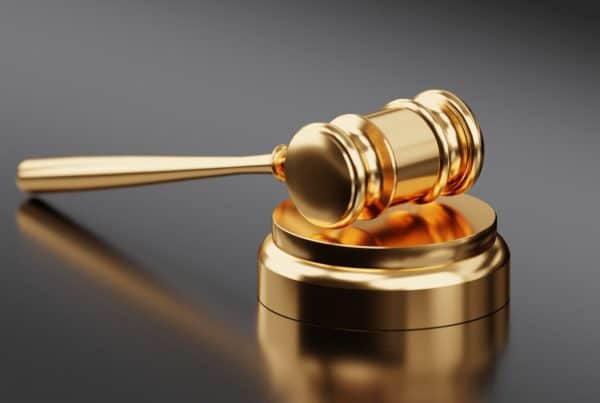
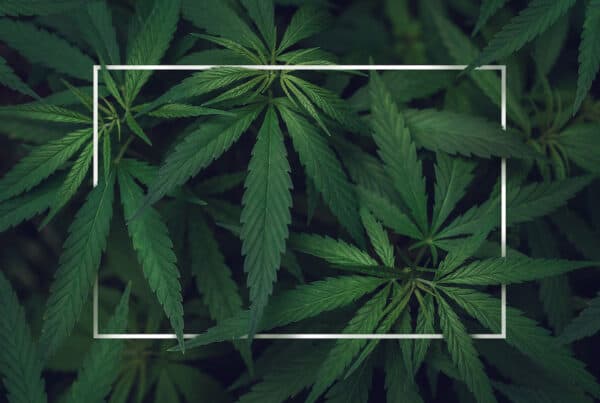
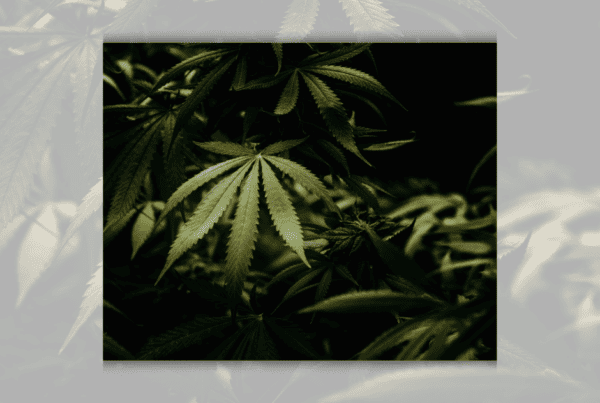
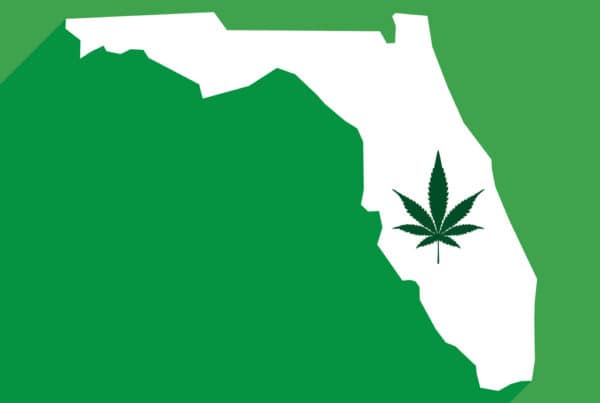
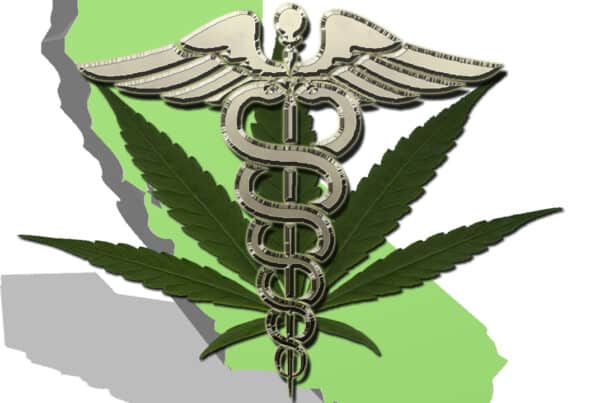

 Jeff was involved in an accident where he endured a traumatic brain injury. He had a week-long stay in ICU where brain surgeons
Jeff was involved in an accident where he endured a traumatic brain injury. He had a week-long stay in ICU where brain surgeons  100% risk free money back guarantee within 48 hours after purchase if student has not completed any of the courses or exams.
100% risk free money back guarantee within 48 hours after purchase if student has not completed any of the courses or exams.